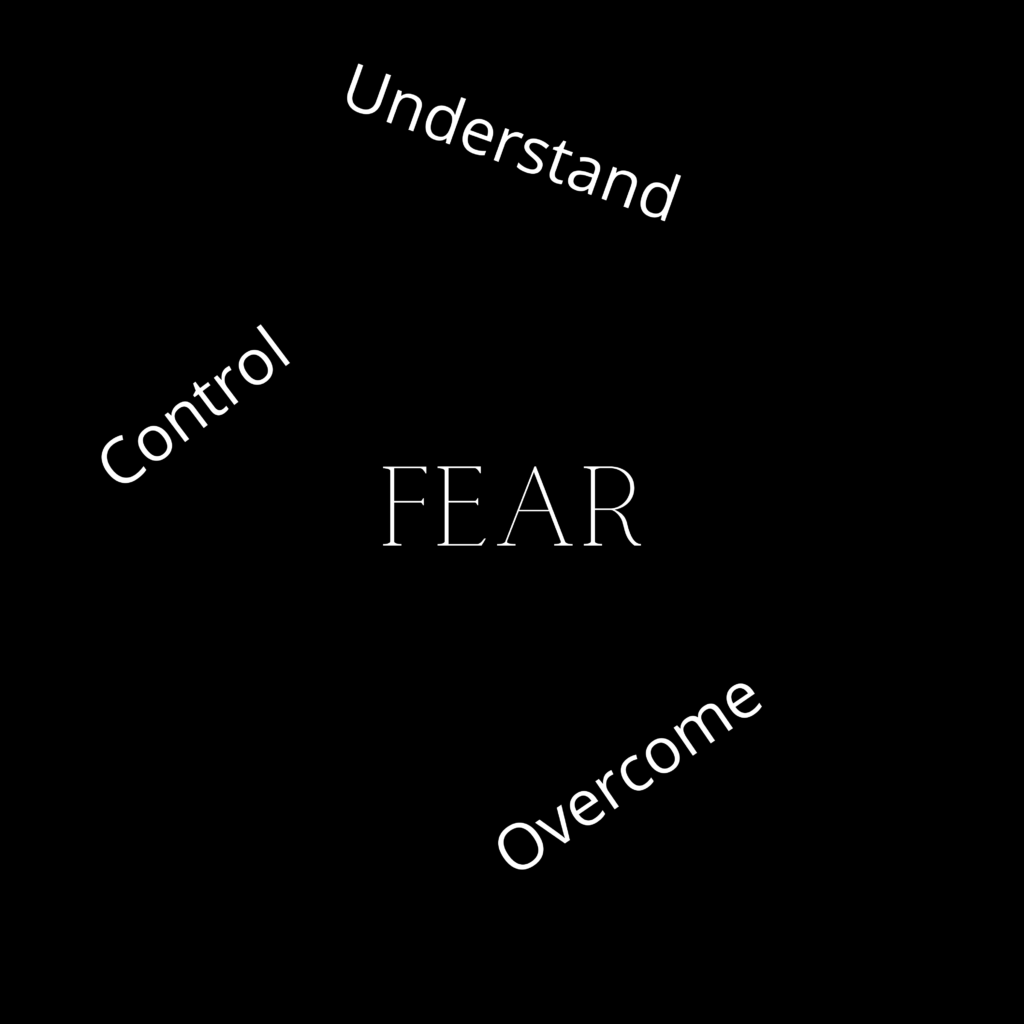‘There’s Fear in the Air’ Series
Definition:
FEAR, noun
A painful emotion or passion excited by an expectation of evil, or the apprehension of impending danger. fear expresses less apprehension than dread, and dread less than terror and fright. The force of this passion, beginning with the most moderate degree, may be thus expressed, fear dread, terror, fright. fear is accompanied with a desire to avoid or ward off the expected evil. fear is an uneasiness of mind, upon the thought of future evil likely to befall us. *
- In Old English, the word fear indicates a sudden attack, calamity, an ambush.
- In Old Norse it indicates harm, distress, deception. *
- In the Greek fear is phobos, akin to phobias.
- In Hebrew, fear means awe, honor, respect.
The Two Types of Fear
Innate Fears: fears that are inborn, natural, congenital, inherited, instinctive, spontaneous, unlearned, untaught.
Learned Fears: Fears that are experienced or taught.
Fear Factors
According to WebMD*, fear is related to the absence of a gene called the Stathmin gene. There are innate and learned fears not connected to memory. This gene is not related to memory. There are also studies done involving other genes, like the neuroD2 gene that may be connected to fear.
The research of the fear factor will assist in an improved understanding of and therapy for stress disorders, personality disorders, phobias and anxiety.
Fear has a crucial role in survival.
It’s obvious that people become afraid. Fear is such great problem in our society. Fear is a useful tool in survival, it is the emotion that can keep us alive. Excess or exaggerated fear is what sabotages the healthy fear. To obtain a balance is the important goal. So, how do we redirect the fear when we need to?
When the fear is redirected and made ineffective in our life, there is no more need to correct it. When the thing we fear is no longer around, there is no need to feel the need to survive. A part of our brain called the amygdala is involved in the fear awakening and in the stopping of the fear.
The parts of our brain that are responsible for our reactions to what we perceive as a threat, will trigger the brain to cause a release of stress hormones and will awaken the sympathetic nervous system. That way we can fight or flee from the threat.
When you notice yourself or another feeling eminent danger, the body state changes. There is a hyperalert state in which the pupils in the eyes dilate, the lungs get ready for flight causing rapid and deeper breathing. The heart rate and blood pressure rise, glucose is released, and the muscles are readied for action. Internal organs slow down if they are not necessary to the fight or flight situation. The body can then assess whether this fear response is toward a real or perceived fear.
Overcoming Fear

There is a direct relationship between being able to diffuse fear in a healthy way and that same fear becoming an abnormal overwhelming response. It has to do with how a person perceives the danger. It is critical to overcome unhealthy fears as soon as we can. Those out-of-control fears is what trigger anxiety disorders later on. Phobias, separation anxiety, PTSD and obsessive-compulsive disorders can begin at a young age and if not treated successfully those fears will greatly control that person’s life.
Understand the role of fear in survival, reign it in to be controlled by yourself, gain insight into why you react to the situation, know that you can overcome it.
*Sources: https://www.etymonline.com/word/fear#:~:text=%29%20Middle%20English%20fere%20%2C%20from%20Old%20English,the%20verbal%20root%20%2Aper-%20%283%29%20%22to%20try%2C%20risk.%22; http://webstersdictionary1828.com/; https://www.webmd.com/mental-health/news/20051117/unlocking-origin-of-fear; https://www.ncbi.nlm.nih.gov/pmc/articles/PMC2749314/; https://www.psychologicalscience.org/observer/learning-to-fear; https://www.smithsonianmag.com/science-nature/what-happens-brain-feel-fear-180966992/*Note: This ‘There’s Fear in the Air’ Series started on 9/3/19. I had lived with fear all my life and was becoming aware of a change in society. Now it has prepared me for the current crisis we are in.
